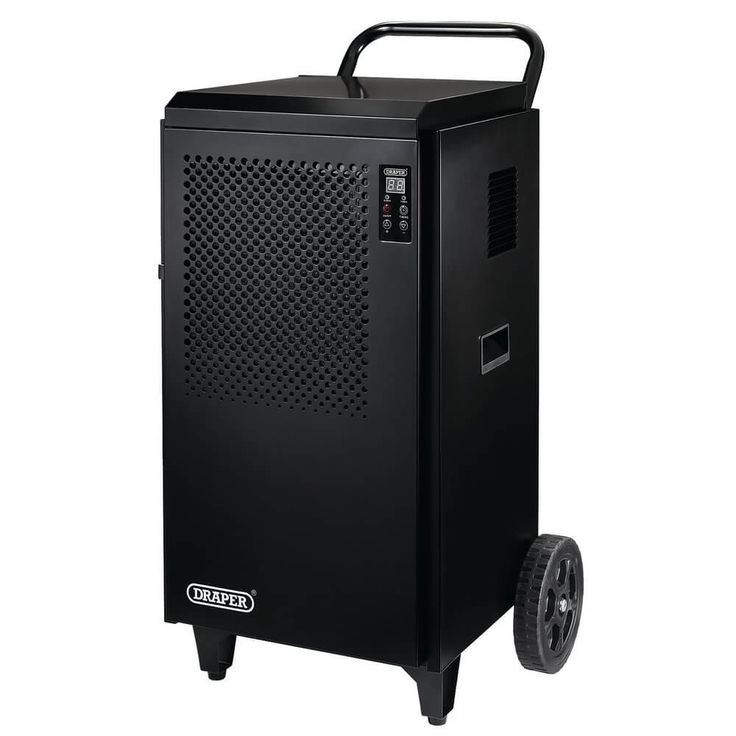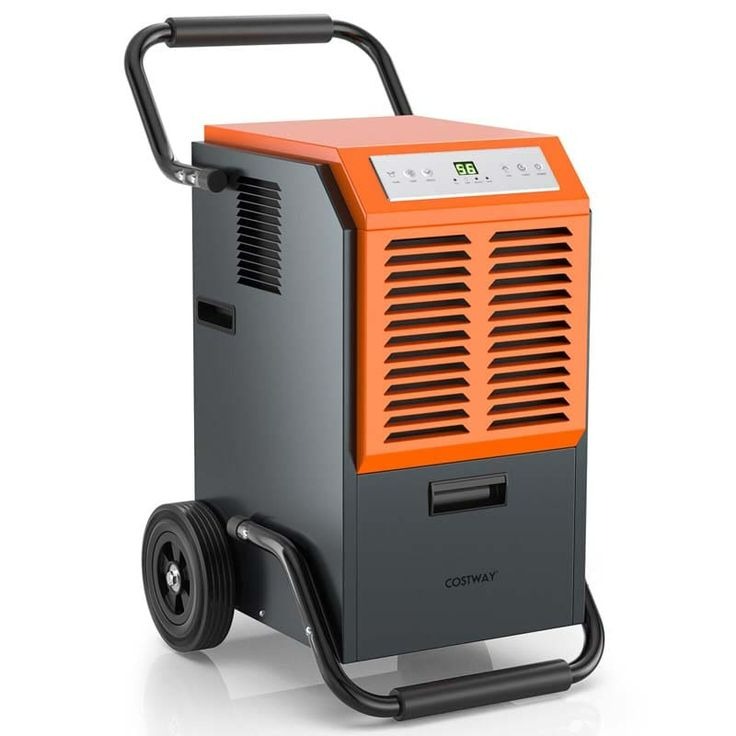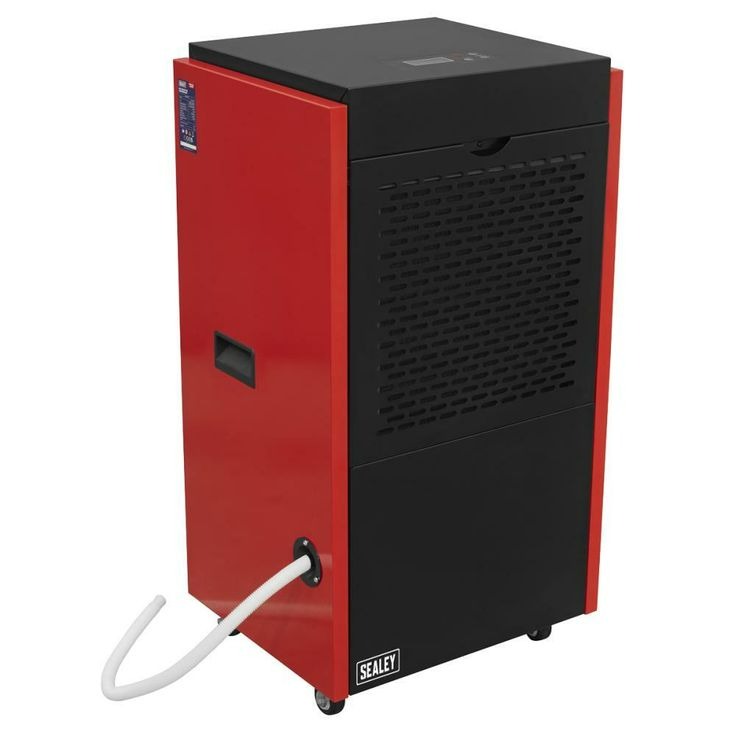Why Industrial Dehumidifiers are Essential for Businesses
Industrial dehumidifiers are crucial for many businesses for a variety of reasons. They ensure optimal air quality, which is vital for both product and employee well-being. High humidity can lead to a host of problems, including mold growth, corrosion, and equipment malfunctions. These issues can be costly, disrupting production lines and leading to downtime.
Dehumidification in industrial settings maintains a controlled environment. This allows for consistent operating conditions, which is important for quality control. Industries such as food processing, pharmaceuticals, and printing all benefit from the precise humidity management provided by industrial dehumidifiers.
Moreover, these devices contribute to energy efficiency. By removing excess moisture, they help maintain a stable temperature. This can reduce the load on cooling systems, leading to lower energy bills. In sectors where tight humidity control is not just preferable but mandated, reliable industrial dehumidifiers are indispensable. They ensure compliance with industry regulations and standards.
Finally, investing in industrial dehumidifiers can lead to better product outcomes and increased staff comfort. Both of these factors contribute to a more productive work environment and can positively impact a company’s bottom line. They are not just a piece of equipment; they are essential partners in maintaining a successful business operation.

Key Features to Look for in an Industrial Dehumidifier
When searching for an industrial dehumidifier, it’s important to know the key features that affect performance and efficiency. Here are essential attributes to consider.
Capacity
Check the dehumidifier’s ability to extract moisture over a certain period. A high-capacity unit is vital for large industrial spaces.
Energy Efficiency
Opt for models that use less energy. This will keep operating costs low while delivering effective moisture control.
Durability
Industrial settings are harsh. Choose a dehumidifier built to withstand tough environments.
Maintenance Requirements
A good industrial dehumidifier should be easy to maintain. This reduces downtime and keeps production running smoothly.
Integrated Humidistat
An integrated humidistat will enable automated humidity control. It adjusts operation to maintain the set humidity level.
Continuous Drainage Option
For convenience, select a dehumidifier with a continuous drainage feature. This eliminates the need for frequent manual water removal.
Air Filtration
Some industrial dehumidifiers offer air filtration. This improves air quality by removing particles along with moisture.
Portability
If needed across various locations, a portable unit can be highly beneficial. It allows for flexibility in usage.
Warranty and Support
A comprehensive warranty and accessible customer support are important. They ensure quick resolution of issues and peace of mind.
By focusing on these features, you can find an industrial dehumidifier that meets your business’s specific needs. A suitable unit will enhance air quality, protect assets, and promote a productive environment.

How Industrial Dehumidifiers Work to Control Humidity
Industrial dehumidifiers manage indoor air moisture with precision. They work by drawing in humid air and passing it over a refrigerated coil. This process causes the moisture in the air to condense on the coil. As a result, the air becomes drier before it’s recirculated back into the room.
The collected water drips into a tray or directly exits through a drainage system. The key here is the refrigeration cycle, similar to that used in air conditioners. However, the primary goal is moisture removal, not cooling the air.
Most industrial dehumidifiers have a humidistat. This device measures the air’s moisture content. When humidity rises above the desired level, the humidistat activates the dehumidifier. Once the optimal humidity level is reached, the unit turns off automatically.
This automated process ensures continuous monitoring and control of humidity. It provides businesses with a hands-off approach to maintain their desired conditions. Industrial dehumidifiers come in varying sizes. Larger spaces need units with higher capacities to effectively manage moisture.
In summary, industrial dehumidifiers pull in air, cool it to remove moisture, and push out drier air. They automate humidity control while maintaining efficient operations. This mechanism is simple but crucial for an array of industrial applications.
The Benefits of Maintaining Proper Humidity Levels in Industrial Settings
Maintaining the right humidity levels is critical for industrial operations. Proper humidity control can avoid many issues. It can stop mold from forming and prevent corrosion on metals. Dry air ensures machines work well, without any moisture-caused failures.
By keeping humidity in check, product quality stays high. For instance, in food processing, the right moisture levels keep food fresh and safe. This is also true in the pharmaceutical industry, where drugs need dry conditions for storage.
Another benefit is energy savings. With less humidity, cooling systems work more efficiently. This means lower energy bills. It also adds to the life-span of HVAC systems, as they don’t work as hard.
When humidity is well-managed, workers feel better and can do their jobs more effectively. Comfortable conditions lead to better focus and fewer mistakes. This can boost overall productivity.
Fewer humidity-related repairs and defects can lower a company’s costs. By investing in a good industrial dehumidifier, maintenance can drop. This saves both time and money, two valuable resources in any business.
In summary, the right humidity levels can lead to better products, savings, and a comfortable work environment. They are key to a successful and efficient operation in many industries.

Best Practices for Operating Industrial Dehumidifiers
To gain the most from industrial dehumidifiers, follow these best practices. They ensure optimum performance and longevity.
Regularly Check and Clean Filters
Clean filters are key to proper airflow. Regular checks prevent clogs and maintain efficiency.
Monitor Humidity Levels
Keep an eye on humidity. Adjust your dehumidifier settings as needed for stable conditions.
Ensure Proper Placement
Place dehumidifiers where air can circulate freely. Avoid cramped spaces for better moisture removal.
Perform Routine Maintenance
Stick to a maintenance schedule. This keeps your industrial dehumidifier running without hiccups.
Educate Your Staff
Train your team. Make sure they know how to operate and troubleshoot the dehumidifier.
Review Energy Consumption
Track energy use. Look for ways to run your dehumidifier more efficiently and cut costs.
Respond to Alerts Promptly
Modern units issue warnings. Respond quickly to alerts to avoid bigger problems.
Update Settings for Changing Conditions
Change settings with the seasons. Adjust for varying indoor air qualities throughout the year.
By implementing these best practices, businesses can ensure their industrial dehumidifiers perform well. They improve air quality, keep products safe, and save money on energy costs.
Case Studies: Successful Industrial Dehumidifier Applications
Industrial dehumidifiers do more than manage moisture. They shape a business’s success. Real-world stories show how these machines meet diverse needs. Below are case studies that illustrate their vital role in different sectors.
Keeping Pharmaceuticals Stable Through Precise Humidity Control
A leading pharmaceutical company faced product spoilage. High humidity was to blame. After installing industrial dehumidifiers, the issue stopped. The controlled environment preserved medication quality. It ensured safety and compliance. This investment paid off by reducing losses.
Enhancing Food Preservation in Storage Facilities
Food storage demands dry environments. One large warehouse implemented industrial dehumidifiers. This stabilized the humidity. It reduced the spoilage rate and extended shelf life of perishable goods. As a result, the company saw improved customer satisfaction and reduced waste.
Improving Printing Quality in High-Humidity Regions
A printing business in a humid climate struggled with paper warping. Water vapor affected the printing process. After using industrial dehumidifiers, print quality soared. Consistent paper conditions led to fewer reprints. The business benefited from lower material costs and happy clients.
Boosting Employee Comfort and Productivity
Workers at a textile factory complained about the hot, moist air. The damp conditions made the workplace uncomfortable. Management decided to install industrial dehumidifiers. This created a cooler and more comfortable environment. Employee satisfaction grew, and so did productivity.
Through these cases, industrial dehumidifiers prove their value. They protect products, ensure quality, and enhance work environments. Each example shows a different application, yet the outcome is the same. Businesses thrive with proper humidity management.
Maintenance Tips for Prolonged Efficiency of Industrial Dehumidifiers
To keep your industrial dehumidifier running at peak performance, routine maintenance is essential. Here are some tips to ensure prolonged efficiency of your industrial dehumidifier.
Inspect and Clean the Coils Regularly
The coils are where the magic happens, by condensing moisture from the air. Dirt and grime can insulate coils and hinder their efficiency. Make sure to inspect and clean the coils every few months to maintain optimal performance.
Check the Airflow
Airflow is crucial for a dehumidifier’s operation. Ensure nothing is blocking the intake or exhaust. Keep at least a few feet of space around the unit free from obstructions.
Empty and Clean the Water Collection Reservoir
If your dehumidifier does not have continuous drainage, the reservoir needs attention. Empty it often and clean it regularly to prevent mold and mildew growth.
Replace or Clean Air Filters
Air filters trap particles and protect internal components. Clean or replace filters as recommended by the manufacturer, typically every six months. This helps maintain air quality and dehumidifier efficiency.
Observe for Frost Build-up
In cooler temperatures, frost may form on the coils. If it does, the dehumidifier could lose efficiency. If you notice frost, turn the unit off to let it melt and restart it later.
Schedule Professional Maintenance
Experts can detect and resolve issues you might not notice. It’s good practice to have a professional check your industrial dehumidifier annually.
Update Settings as Needed
Your business’s needs may change with seasons or production levels. Update dehumidifier settings accordingly to ensure effectiveness.
By following these maintenance tips, you can help your industrial dehumidifier last longer. This practice keeps it working efficiently, saving your business from unexpected costs and downtime.
Selecting the Right Industrial Dehumidifier for Your Business Needs
Selecting an industrial dehumidifier is a vital decision for your business. To choose wisely, consider several factors. Size of the area, moisture levels, and intended use are crucial. Look at the unit’s capacity to ensure it can handle the air volume. Consider energy efficiency for lower costs. Check for durability in your work environment. Your business may need air filtration or portability from the unit. Last, warranty and support are key for long-term use.
Start with assessing the space size and humidity issues. Match these with a dehumidifier’s capacity. This step helps avoid under or over-performing units. Seek units with energy-efficient features. They reduce long-term operating expenses. Ensure the unit is tough enough for industrial settings. This means it can withstand rough conditions without frequent repairs.
Some industries need better air quality. In this case, look for dehumidifiers with built-in air filters. If you move the unit often, go for a portable model. It can easily go where it’s needed.
Before buying, review the warranty and support services. These can save time and money if a problem arises. Make sure you understand what’s covered and how to get help.
In sum, find a dehumidifier that fits your business needs. It should handle your space and moisture. It should be efficient, durable, and have the extra features you need. Good support should back it. With the right unit, your business can maintain optimal humidity. This leads to better product quality and a comfortable work setting.